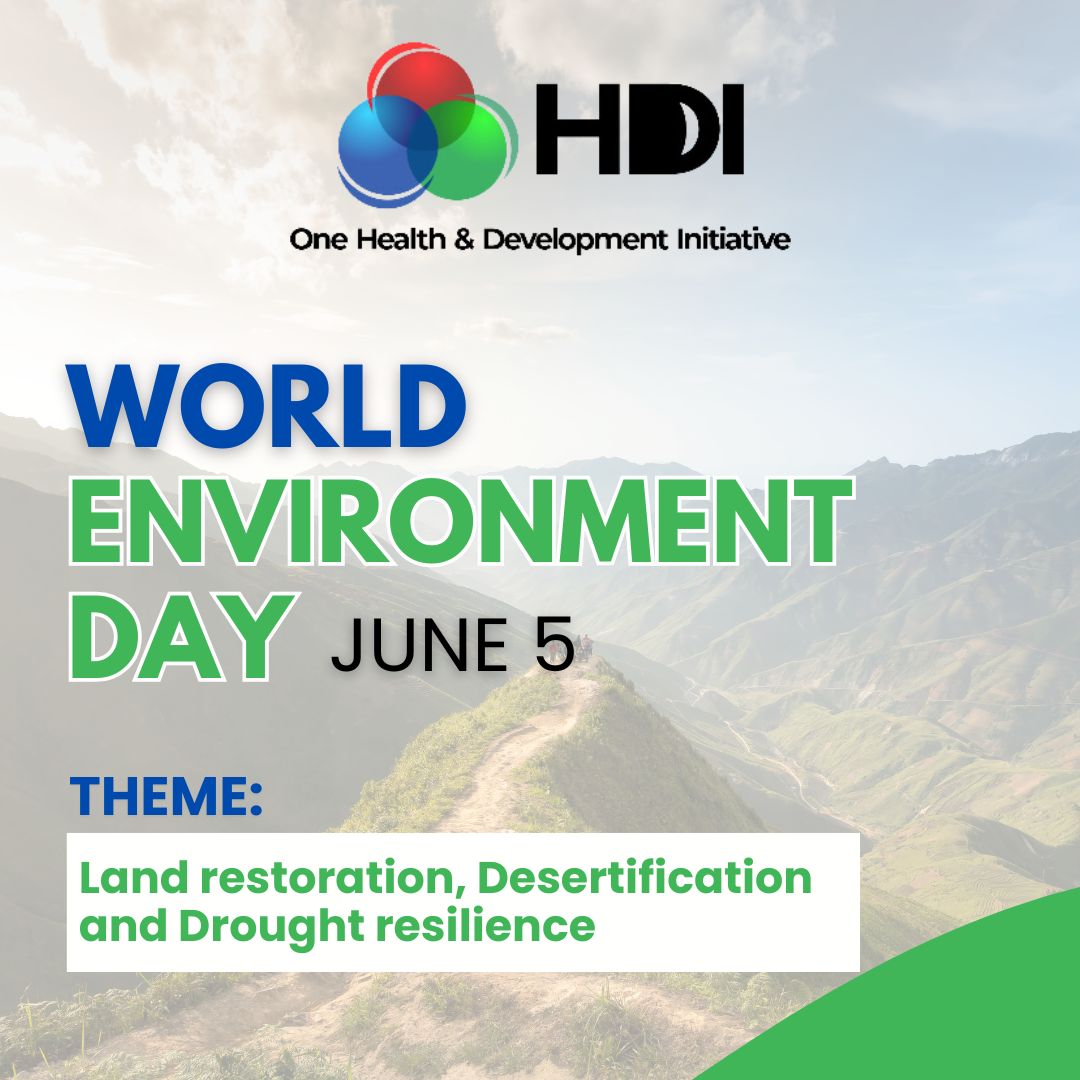World Environment Day 2024: Land Restoration, Desertification, and Drought Resilience

On this World Environment Day, One Health and Development Initiative (OHDI) joins the rest of the world to draw attention to critical issues that affect us all. Every year, on June 5th, we celebrate this day as a tool to encourage awareness and sustainable actions for the environment. And why shouldn’t we promote sustainable actions for the environment? The environment is where humans, animals, and other living and nonliving components operate and rely on for survival.
This year’s theme, “Land Restoration, Desertification, and Drought Resilience,” emphasises the urgent need to address the degradation of our land, the growth of deserts, and water scarcity, as well as their far-reaching impacts. Desertification and drought claim 12 million hectares of productive land annually, threatening the livelihoods of over 1.5 billion people worldwide. Climate change intensifies these issues, underscoring the importance of developing sustainable strategies for land restoration and resilience.
Adopting the One Health Approach
Desertification, land degradation, and drought are not just environmental concerns, they equally pose serious challenges to human and animal health. For example, events such as drought put pressure on freshwater resources. This in turn impacts the availability of freshwater for humans, animals, and different life processes. Therefore, the One Health approach is essential to tackling these challenges.
The One Health approach acknowledges the interconnectedness of human, animal, and ecosystem health. By integrating efforts across these domains, we can address complex health challenges more effectively. Some of the One Health principles that can be applied to restore land, combat desertification, and promote drought resilience include:
- Restoring ecosystems
Synergizing efforts across multiple sectors can help restore ecosystems and thus improve health outcomes. Actions such as reforestation and the rehabilitation of degraded lands can restore ecosystem services that are vital for both human and animal health. Healthy ecosystems provide clean water, air, and fertile soil, and they are more resilient to drought impacts.
- Promoting sustainable agriculture
By implementing sustainable agricultural practices, we can improve soil health and fertility, increase crop yields, and reduce the risk of desertification. Farming techniques such as agroforestry, crop rotation, and the use of organic fertilisers protect the land and support wildlife populations.
- Adopting efficient water management practices
We must manage water more efficiently, as access to clean water is essential. Practices, such as the cultivation of drought-resistant crops and harvesting rainwater, can help communities better cope with water scarcity.
- Supporting local communities
Empowering local communities with the knowledge and resources to manage their natural resources sustainably can lead to more effective and lasting solutions. Also, advocacy efforts can promote awareness and drive actions that contribute to land restoration, combat desertification, and promote drought resilience in local communities.
Finally, through continued research and investigation into the interconnectedness between environmental, human, and animal health, we can inform policies and practices that promote resilience and sustainable development across the board. This World Environment Day, OHDI urges individuals, communities, and governments to take decisive action to restore land, combat desertification, and enhance drought resilience through the One Health approach.
Happy World Environment Day 2024!





